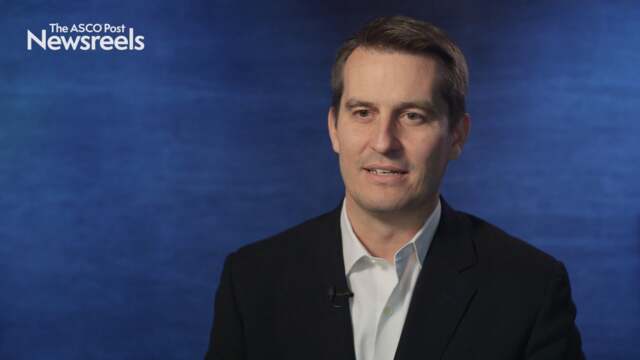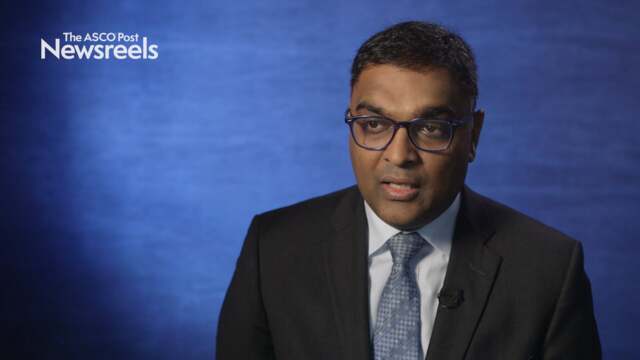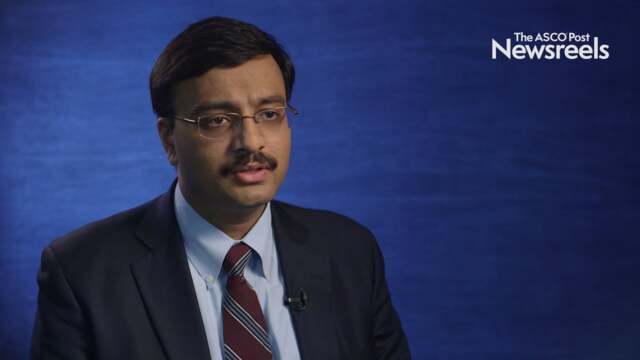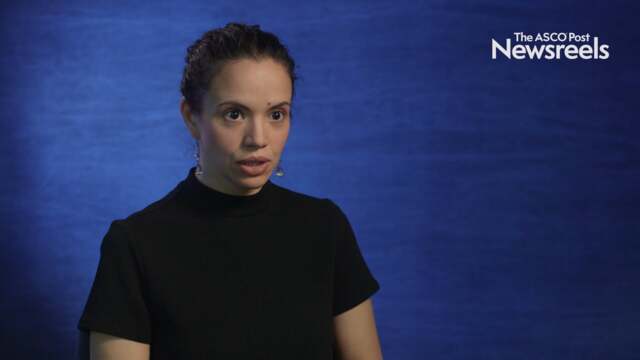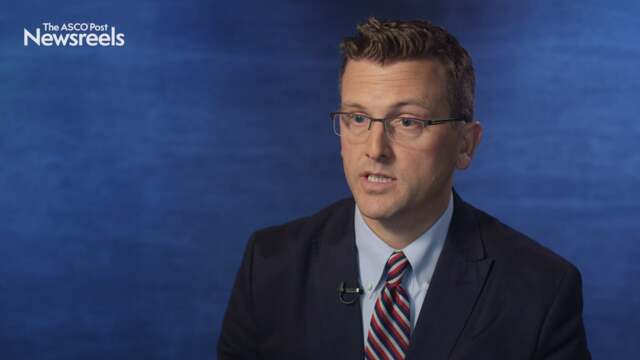Tycel J. Phillips, MD, on Intravascular DLBCL: Study of Patient Features and Outcomes
2017 ASH Annual Meeting
Tycel J. Phillips, MD, of the University of Michigan Medical School, discusses the findings of the largest retrospective study to date of patients with intravascular diffuse large B-cell lymphoma, a disease with a poor outcome, partly due to the difficulty in diagnosing it early (Abstract 377).
Brian T. Hill, MD, PhD, of the Cleveland Clinic, discusses study findings that showed consolidation with autologous hematopoietic cell transplant in the first remission improves overall survival in patients younger than age 65 (Abstract 341).
Alok A. Khorana, MD, of the Cleveland Clinic, discusses the prevalence of venous thromboembolism in cancer patients treated at U. S. emergency departments and associated costs, mortality, and hospital admissions in the United States (Abstract 219).
Nitin Jain, MD, of The University of Texas MD Anderson Cancer Center, discusses phase II study results on combined venetoclax and ibrutinib for patients with previously untreated high-risk and relapsed/refractory chronic lymphocytic leukemia (Abstract 429).
Carla Casulo, MD, of the James P. Wilmot Cancer Center, discusses findings on POD24 as a robust early clinical endpoint of poor survival in follicular lymphoma, using data from more than 5,000 patients in 13 clinical trials (Abstract 412).
Mark J. Roschewski, MD, of the National Cancer Institute, discusses phase II study findings that showed DA-EPOCH-R cures most adult patients with Burkitt lymphoma, irrespective of HIV status (Abstract 188).
